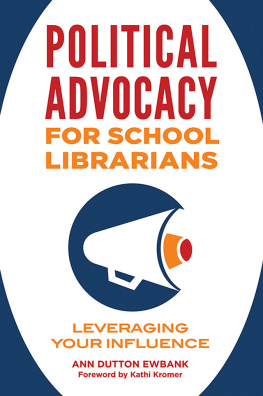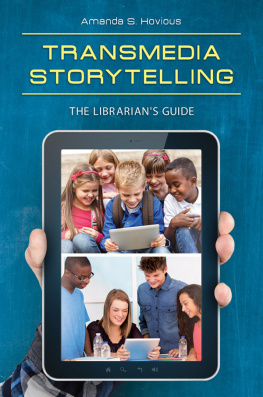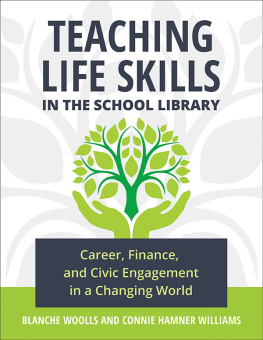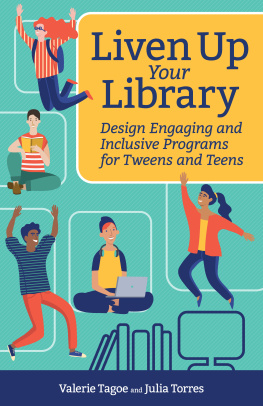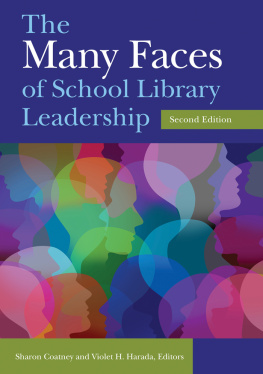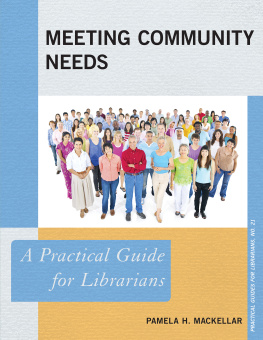Political Advocacy for School Librarians
Political Advocacy for School Librarians
Leveraging Your Influence
Ann Dutton Ewbank
Foreword by Kathi Kromer
Copyright 2019 by Ann Dutton Ewbank
All rights reserved. No part of this publication may be reproduced, stored in a retrieval system, or transmitted, in any form or by any means, electronic, mechanical, photocopying, recording, or otherwise, except for the inclusion of brief quotations in a review, without prior permission in writing from the publisher.
Library of Congress Cataloging-in-Publication Data
Names: Ewbank, Ann Dutton, author.
Title: Political advocacy for school librarians: leveraging your influence / Ann Dutton Ewbank; foreword by Kathi Kromer.
Description: Santa Barbara: Libraries Unlimited, 2019. | Includes bibliographical references and index.
Identifiers: LCCN 2018043997 (print) | LCCN 2018057583 (ebook) | ISBN 9781440863899 (ebook) | ISBN 9781440863882 (alk. paper)
Subjects: LCSH: School librariesGovernment policyUnited StatesCitizen participation. | School librariansPolitical activityUnited States. | Libraries and communityUnited States.
Classification: LCC Z675.S3 (ebook) | LCC Z675.S3 E93 2019 (print) | DDC 027.8dc23
LC record available at https://lccn.loc.gov/2018043997
ISBN: 978-1-4408-6388-2 (paperback)
978-1-4408-6389-9 (ebook)
23 22 21 20 19 1 2 3 4 5
This book is also available as an ebook.
Libraries Unlimited
An Imprint of ABC-CLIO, LLC
ABC-CLIO LLC
147 Castilian Drive
Santa Barbara, California 93117
www.abc-clio.com
This book is printed on acid-free paper 
Manufactured in the United States of America
To advocates for school libraries.
To the American Library Association and its division, the American
Association of School Librarians, my professional home.
To the American Library Associations Washington Office, for over
70 years of advocacy for school libraries.
Contents
by Kathi Kromer
Over the course of my 20-year career in coaching people on how to take action on a wide array of public policy issues, I have yet to meet one person who is not capable of being an effective advocate for something he or she truly believes in. The causes Ive championed over the yearsfrom environmental efficiency standards to rare disease research to, now, librarieshave changed, but the tried-and-true recipe for advocacy remains the same. All advocacy boils down to knowing the facts and building and maintaining relationships with elected officials.
As I began my own relationships with library advocates to advance the public policy and advocacy priorities of the American Library Association (ALA), the passion and expertise of library advocates were immediately apparent to me. However, I was very surprised to learn that so many advocates do not realize how powerful their voice can be in the political process. Many library advocates Ive met say, Im just a school librarianI cant get involved in politics, or Why would an elected official listen to a librarian like me?
Each citizen in a democracy has a role to play in the political process. Certainly, school librarians, whose mission it is to advance democracy by empowering an informed citizenry, are perfectly positioned to advocate powerfully before political leaders on behalf of their students. Librarians are already leaders building and maintaining relationships with people in their community, and elected officials are no different than the others in their community. Political leaders and their staff rely on the testimony of reputable influencers like librarians to identify the needs of their constituents and the actions those elected leaders can take to address those needs. While library advocates will not always agree with their representatives on every issue, it is incumbent upon librarians to open the dialogue and be present at the decision-making table because the well-being of our communities is at stake.
Ann Ewbank has the experience and the expertise to help school librarians find their voice. Her interest in politics inspired her to do an internship in the Arizona State House of Representatives as an undergraduate student. Her keen intellect and classroom experience brought her to Montana State University as associate professor of school library media. Her passion for advocacy led to her appointment as chair of ALA Committee on Legislation and her selection as an inaugural member of the ALA Policy Corps. I am grateful for her contribution to my understanding of the public policy and advocacy issues facing libraries.
Guiding librarians to take the first steps to claim their role in political advocacy is the very task of this book. In Political Advocacy for School Librarians: Leveraging Your Influence , Ewbank provides a thorough overview of the history of school library advocacy, firmly establishes the role of school librarians as community leaders, and reveals unspoken assumptions behind political engagement. She frames several unique approaches to advocacy based on the differences between local, state, and federal governance structures. Perhaps most enlightening of all are the specific examples and proven techniques she shares for engaging in effective advocacy efforts at all levels of government.
This book is neither a classic apology for advocacy nor simply an instruction manual. Through carefully constructed questions at the end of each chapter, Ewbank challenges readers to analyze their own political contexts and mindfully consider how to apply learnings in their unique situation. Readers who take those provocative questions seriously will benefit most from this text.
If nothing else, thoughtful readers will come away from this book with a renewed sense of purpose and power. Whatever level of experience you start from, it is easy to start advocating in ways that you feel most comfortable. By clearly outlining so many actionable steps, both for beginner and veteran advocates, Ewbank leaves readers with no excuses for claiming their voices as trusted community leaders.
I challenge you to start implementing some of the techniques in this book and see what a difference you can start making by establishing and cultivating long-term relationships with the decision makers in your community. You are the primaryand perhaps the onlysource for elected officials and their staff on how public policy changes they are considering could impact your community. In this polarizing political environment with so many competing priorities, it is more important than ever to raise awareness and keep library issues on the radar screen of every elected official.
Kathi Kromer
Associate Executive DirectorWashington Office
American Library Association
I received support for writing this book from many individuals. I would like to acknowledge the faculty and staff of Montana State Universitys College of Education, Health and Human Development, particularly its Dean, Alison Harmon, as well as Tricia Seifert, Education Department Head. These leaders and colleagues gave me the space and time to complete my writing and provided much mentorship along the way, for which I am forever grateful.
My parents, Dave and Pat Dutton, provided encouraging words as I completed the book. Thank you for your unwavering support.
Thank you to my acquisitions editor, Sharon Coatney, and the entire ABC-CLIO/Libraries Unlimited team.

